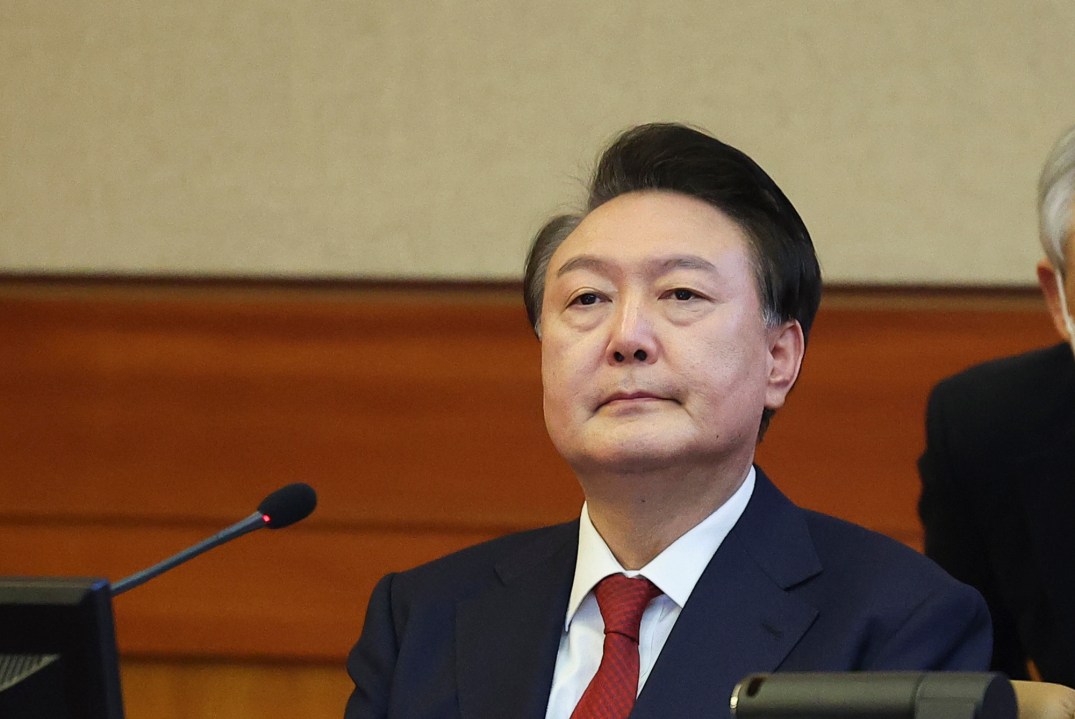Yoon Suk Yeol, elected South Korea’s president in 2022, has been removed from office. The Constitutional Court in Seoul has upheld Yoon’s impeachment over his actions in the ultra-short-lived declaration of martial law last December. After lengthy deliberations the court delivered a decisive eight-zero verdict. A snap election must now be held within 60 days with Prime Minister Han Duck-soo serving as acting president in the interim.
Yoon’s PPP (People Power party) accepted the verdict and the man himself issued a humble apology to the nation saying, ‘I deeply regret not being able to live up to your expectations. It has been the greatest honour of my life to serve our nation.’ The verdict was greeted with jubilation by activists outside the court, who played pop songs and partied, but with dismay by Yoon’s supporters who gathered, in smaller numbers, outside his residence.
Yoon, a former prosecutor turned politician, had claimed that the martial law declaration on 3 December was necessary to counter ‘anti-state’ and ‘North Korean Communist’ forces, which he implied, but never provided evidence to show, were embedded in his parliamentary rival the Democratic party (DP). Yoon subsequently argued he had never intended to fully implement martial law and that no one had been hurt in the somewhat farcical episode, which much of the nation slept through.
Outrageous gambit or not, it failed spectacularly and has brought an abrupt end to Yoon’s political career. Worse, Yoon has only about a week before he will be in court again to face criminal charges of insurrection. He is the first South Korean president to stand trial in a criminal case and must do so without the protections of office. His case is likely to reach the Supreme Court and though the death penalty is theoretically possible a more likely punishment is a lengthy jail term, possibly life.
The Yoon verdict is being seen by many as a welcome resolution to an intolerable situation for South Korea which has riven the country in two. Professor Leif-eric Easley of Ewha University in Seoul said the country has ‘managed to avoid the worst outcomes and can see light at the end of a long political crisis’.
Maybe so. It remains to be seen how actively his supporters will protest the verdict but Yoon didn’t sound particularly defiant in his response. In any case, he may have run out of road. The timing is not helpful for him. His pro-Trump stance probably won’t do much to energise his supporters as South Korea, like everywhere else, is still reeling from the imposition of the US President’s ‘Liberation Day’ tariffs (of 25 per cent).
Elsewhere in Asia, there will probably be relief that Yoon’s political fate has been decisively concluded and the country can move on. In Japan Prime Minister Shigeru Ishiba said he welcomed a clear verdict and stressed the need for continued cooperation with South Korea in the 60th anniversary year of diplomatic relations between the two nations. He called the relationship ‘extremely important for regional peace and stability’.
Ishiba will have cause for concern, though. Somewhat forgotten in the reporting of the Yoon verdict is the news that controversial DP leader Lee Jae-myung was cleared of violating electoral law last week and is now clear to run for president should he wish. Lee is pretty much the opposite of Yoon. He even went on a hunger strike to protest what he saw as Yoon’s ‘pro-Japan’ and pro-US policies and rushed to the National Assembly building on the night of the martial law declaration to vote down the military order.
It is not clear whether Lee will run but whether he does or not, expect the ensuing election to be unusually intense and internationally focused. Along with the tariff question, South Korea is feeling especially vulnerable with Pyongyang currently going through an especially belligerent phase. North Korea recently labelled South Korea its ‘principal enemy’. The question of whether South Korea cleaves to the US and is sympathetic to Japan (Yoon’s position) or seeks some sort of accommodation with China and North Korea will be central.
For many today’s verdict could be seen as confirmation that South Korea has passed a democratic test, but it would be unwise to expect smooth sailing from now on or a return to what had passed for normality. Yoon may go down in history as somewhat of a fool, but there is still plenty of sympathy, at least for his instincts if not his actions. He may be gone, but he certainly won’t be forgotten and the emotions he stirred and uncomfortable issues he raised will continue to influence his country’s politics for the foreseeable future.









Comments